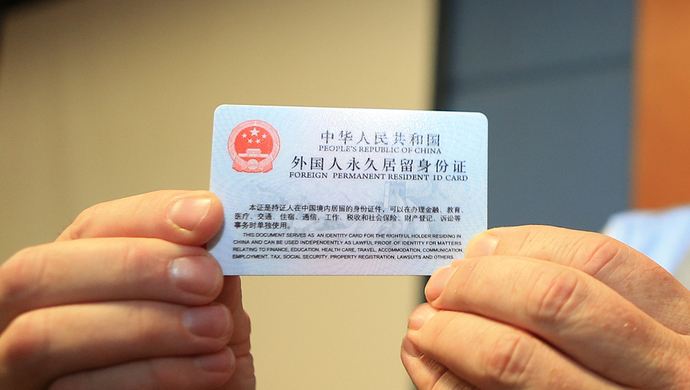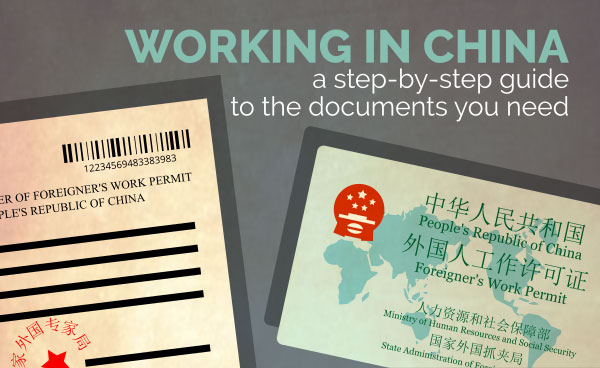
If building up a business network (guanxi) and searching for job openings is the first hurdle, then applying for a job and nailing the following interview is the second. There are a few rules you should follow if you want to make a good impression, both on paper and in person, and get the job you have always dreamed of.
The Chinese Resume
As any seasoned expat and professional with resume-writing experience knows, a resume should be clear, concise, and in reversed chronological order.
Your personal information belongs on the top of the first page, including some details you might not be used to including: aside from your name, address, phone number, and email address, you should also add your date of birth, gender, marital status, and the number of children you have (including their age). A current picture of you is important as well and should show you in professional clothing.
List your latest work experience on the top. Include all work experience that might be important, including short-term employment and internships. Remember to not just list your previous employers and job positions but also the duration of your employment, whether it was part-time or full-time, and what your duties were. This is also were you list the skills you acquired there. However, you should try not to brag or exaggerate but remain modest.
As education is highly valued in China, this information has to be included on your resume as well. Make sure to list all degrees, certificates, and trainings you have. The higher your degree, the more capable your future employer will think you are. Moreover, you need to fulfill certain educational requirements in order to be considered for a Chinese employment visa (Z visa). Your educational history and degrees are an indicator for whether your employer will be able to legally hire you. This is why you should be as thorough with your educational history as with your work experience.
Finally, it is important to include the languages you speak. English is usually a must if you want to work at a big multinational company in China. You should indicate your level of proficiency, especially if you are not a native speaker. While Chinese is not necessary for every position, having some Chinese language skills is definitely a plus and might be required for jobs at local companies.
Much like your business cards, you should provide your resume both in English and Chinese. Be prepared to include references or provide them upon request. Moreover, your future employer may ask you what you expect in salary and how much you have earned in the past. So convert your previous salaries into RMB beforehand.
Surviving the Interview
Although, as a foreigner, you are not expected to know everything about Chinese culture and traditions, you should know the basics and be able to avoid major faux pas during your interview there.
Aside from the usual research, concerning the company and the position you are applying for, you should prepare your references, your resume, and other documents (if requested) to bring to the interview. You will be expected to talk about your work experience and educational background as listed in your resume, so make sure to go through it one more time and memorize some of the key points.
Many companies schedule interviews back to back, so it’s important to be on time. You should be no more than five minutes early or five minutes late, to not mess up their schedule. As hierarchy and status are very important in China, you should always address people with their full names, including titles, and don’t sit down until you are asked to do so.
As mentioned above, you should be ready to offer examples of your skills and qualifications and talk about your work experience. While it’s important to be clear and open about all you past employments, you should also remain concise and humble. This is no time to brag! Moreover, you should always stay positive and polite. Be cautious when asking more uncomfortable questions (about your future salary, for instance) and try to answer questions about your weaknesses in a positive manner.
After the interview, it’s a good idea to follow up with a thank you note. If you are still interested in the position, you should say so, pointing out briefly why you are a qualified candidate. If you have changed your mind, you might mention this in the note as well and ask them to consider you for future job openings.
Discrimination of Job Applicants
As we have mentioned before, Chinese companies usually ask for a lot of personal information, including gender, marital status, etc. Expats who are used to withholding this type of information for various reasons might feel a little taken aback by this.
Even though China’s constitution promises equal opportunities for all people, regardless of gender, age, health, marital status and so on, the reality is often a different one. Discrimination might already start with the job ads, when ads for higher position call specifically for older male applicants and secretarial positions, for instance, are directed at young, attractive women.
Moreover, particularly female applicants might be denied based on their marital status or asked very personal questions about whether they plan on starting a family any time soon. Of course, you won’t have to expect this from every potential employer in China and, since some Chinese workers and female employees have started to fight for their rights, things have begun to change somewhat for the better. To learn more about this issue, have a look at our article on "Discrimination and Racism in China".










 京公网安备 11011202001511号
京公网安备 11011202001511号